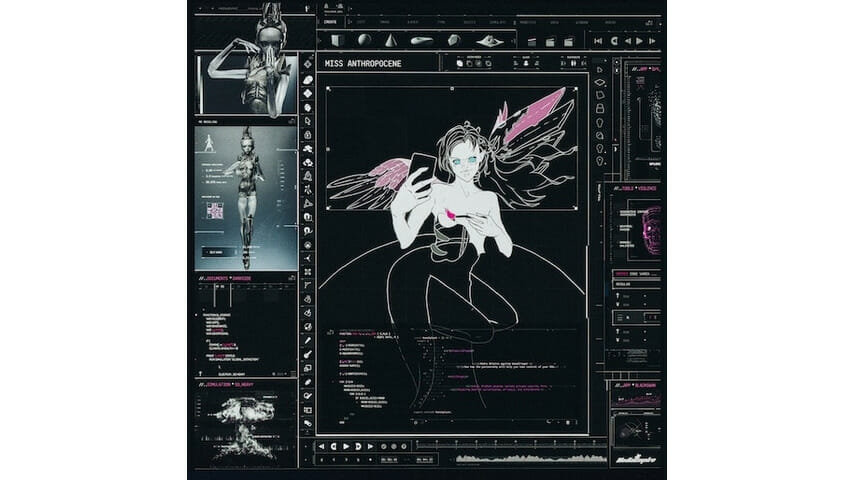Grimes’ Miss_Anthropocene Veers on Incoherent
Claire Boucher strains for meaning on her hotly anticipated fifth album

In 2013, Grimes helped to crystallize the then-burgeoning poptimist movement when she defended mainstream pop music and praised Beyoncé’s feminist bent. In recent months, now long removed from her ominously euphoric 2012 cyborg-pop landmark Visions and its punk-embracing 2015 follow-up Art Angels, the artist born Claire Boucher has instead espoused musical pessimism. Last November, she was lambasted for saying that artificial intelligence could soon render live music obsolete.
In a vacuum, this opinion might sound ridiculous. Within the context of Boucher dating Tesla CEO Elon Musk—who’s as known for his tech innovations as for his rampant internet trolling, union-busting and GOP donations (the latter two of which Boucher has defended)—this notion is still ridiculous, but it’s not unexpected. After spending so much time around someone long accused of not actually understanding science, it’s only natural that Boucher would begin spewing drivel.
Boucher’s pitch for her long-awaited Art Angels follow-up, Miss_Anthropocene, similarly veers on incoherent. In a now-deleted Instagram post, she described Miss_Anthropocene as “a concept album about the anthropomorphic goddess of climate Change [sic]” and said “each song will be a different embodiment of human extinction as depicted through a Pop [sic] star Demonology [sic].” A subsequent conversation between Boucher and the now-peaking Lana Del Rey correctly hinted that Miss_Anthropocene would forgo Boucher’s longtime iconoclasm for vacuousness. If Art Angels flamboyantly tossed pop, dance and nu-metal sounds onto a wall like a Jackson Pollock creation and rendered its characters—pathetic man-babies who replace empathy with being well-connected, women so scary that men don’t even look their way—with Bruegel-esque detail, then Miss_Anthropocene often paints in broad, unengaging strokes.
Looking for deities, climate change, demons or anything of that sort on Miss_Anthropocene takes more effort than most listeners might care to muster. Take “Darkseid” as an example: The track’s throbbing, captivating bass line happens to be among the album’s most musically engaging moments, but Boucher’s “We don’t love our bodies anymore” refrain at most blurrily depicts the disheveled state in which people find themselves as the world around them crumbles. “4ÆM” likewise sounds great but comes off as babble: The chorus explodes into a glorious volcano of drum and bass—Boucher has, graciously, retained her signature ability to enliven oft-maligned genres—but its most discernible lyrics are just Boucher brattily chanting “na na na na na!”
-

-

-

-

-

-

-

-

-

-

-

-

-

-

-

-

-

-

-

-

-

-

-

-

-

-

-

-

-

-

-

-

-

-

-

-

-

-

-

-








































